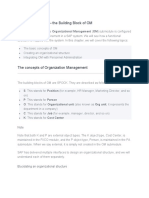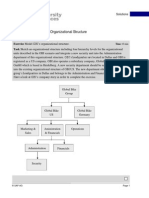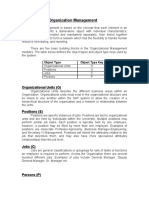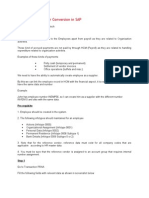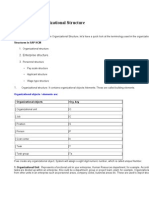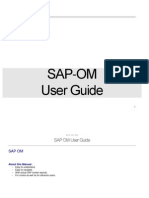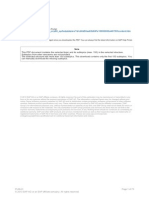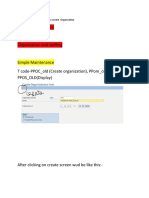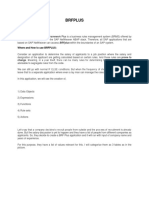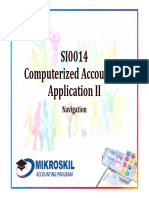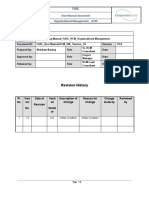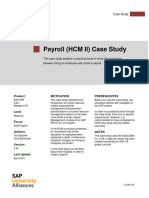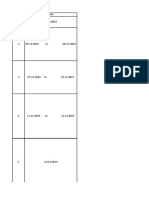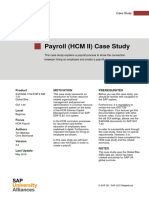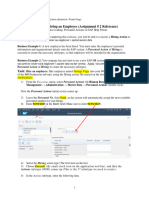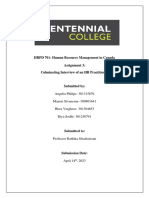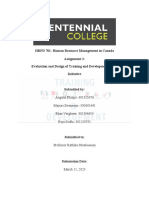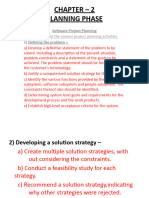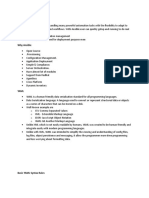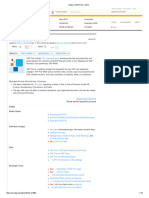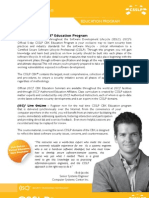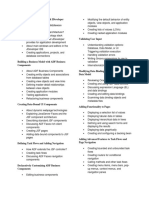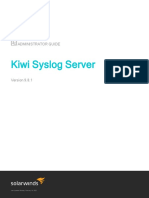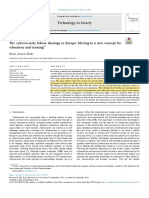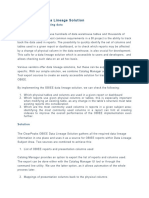0% found this document useful (0 votes)
87 views12 pagesSAP HRMS Organizational Setup Guide
The document outlines the steps taken in SAP to develop an organizational management structure across 7 tasks. Key steps included opening the SAP Easy Access interface, selecting options to access organizational management tools, and entering necessary input like the company name and dates to create organizational units. Subsequent tasks involved creating business units, sub-units, jobs, positions, and job descriptions within the organizational structure. The final tasks allowed viewing and accessing tabular representations of the completed organizational structure.
Uploaded by
angeliaCopyright
© © All Rights Reserved
We take content rights seriously. If you suspect this is your content, claim it here.
Available Formats
Download as PDF, TXT or read online on Scribd
0% found this document useful (0 votes)
87 views12 pagesSAP HRMS Organizational Setup Guide
The document outlines the steps taken in SAP to develop an organizational management structure across 7 tasks. Key steps included opening the SAP Easy Access interface, selecting options to access organizational management tools, and entering necessary input like the company name and dates to create organizational units. Subsequent tasks involved creating business units, sub-units, jobs, positions, and job descriptions within the organizational structure. The final tasks allowed viewing and accessing tabular representations of the completed organizational structure.
Uploaded by
angeliaCopyright
© © All Rights Reserved
We take content rights seriously. If you suspect this is your content, claim it here.
Available Formats
Download as PDF, TXT or read online on Scribd
/ 12

